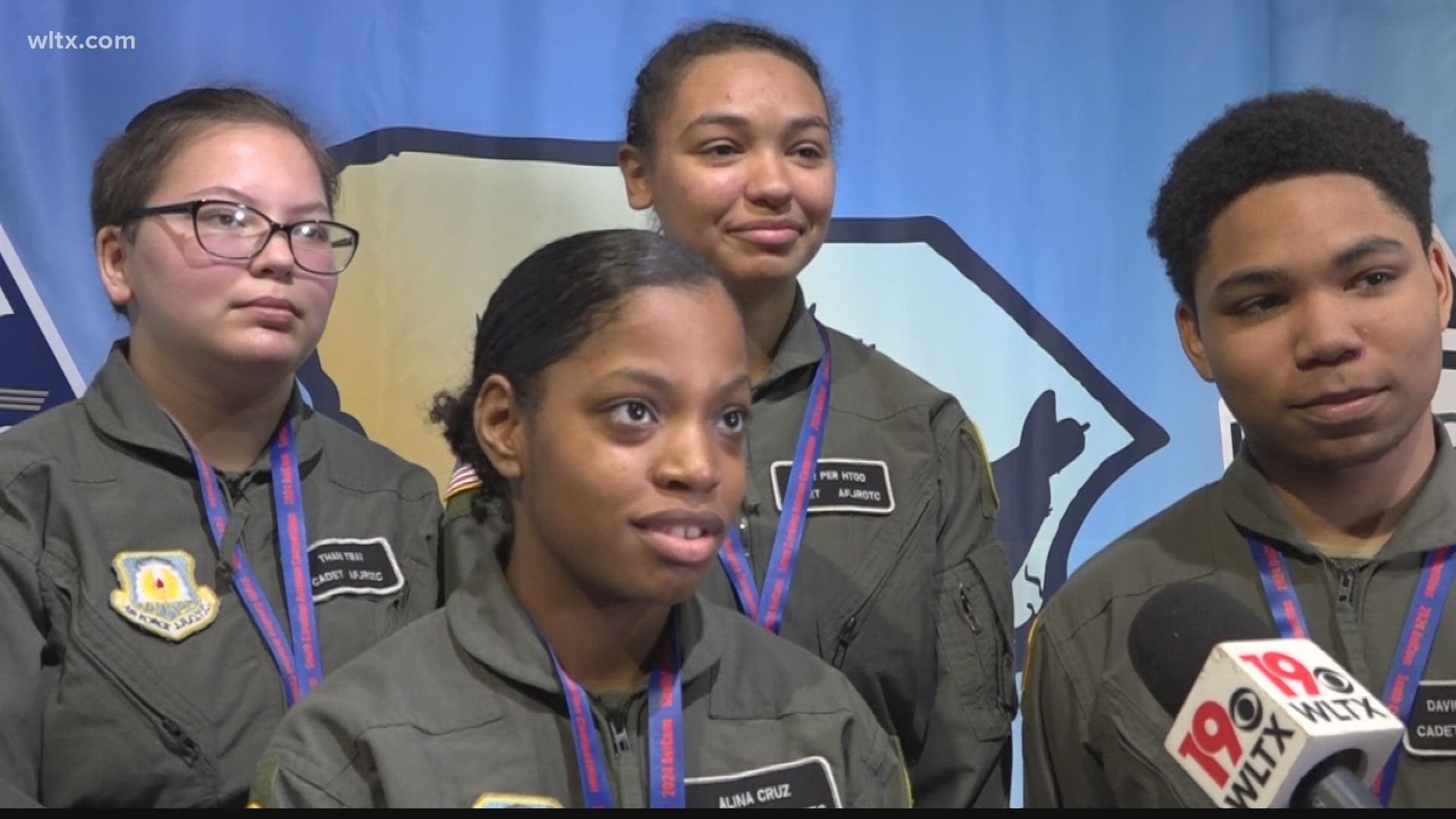COLUMBIA, S.C. — Students interested in aerospace from around South Carolina competed on Friday at the Challenger Learning Center during the annual Aviation Competition (AviCom).
Thirty-two students went head-to-head, testing their knowledge in various aviation categories and participating in a scenario-based simulated flight.
The three-part competition consisted of an aircraft recognition test, a pilot knowledge test, and a team aircraft simulated scenario.
Everyone present during the competition could see the protocol in real-time scenarios. Something that has inspired Columbia High Air Force JROTC member Harmony Perry to pursue it as a career.
"I want to become a real life pilot. It provides a lot of benefits. My plan is to go to USC and then enlist in the military and then have them pay to teach me how to be a pilot," Perry said.
Opportunities like learning in real time what it takes to be a pilot are what AviCom is all about, according to this year's event director, Doug Adomatis.
"AviCom is all about being able to determine who is going to be a safe, proficient aviation professional," Adomatis said. "So in order to do that, you need to have knowledge and skills… and you have to be a team player."
Something Air Force JROTC member Alina Cruze has seen firsthand.
"We learned a lot of teamwork through these, working together and analyzing together," Cruze said.
This was the first year the midlands were able to host AviCom.
"This year we chose Columbia for the venue, it was the 25 stations, just an excellent facility for us to be centrally located," said Adomatis.
And this year, the competition has higher steaks.
"It entails a lot of stress for one cause: the competitors; they came to win," Admatis said. "The prizes and awards are awesome—$ 2,000 for the grand prize winner for flight training. And we have some great sponsors and exhibitors who have come here and leveled up the competition for us."
To win those prizes, students' knowledge in multiple subjects must be put to the test, according to the center's lead flight director, Carolyn Donelan.
"There is a lot of math going on; there's a lot of social studies skills. With cartography, they have to be able to read a map and go from point A to point B, not necessarily in a straight line," Donelan said. "So there's a lot of sneaky science, a lot of sneaky math, there's a little sneaky social studies in here, but it's all integrated, and it's a real-life skill they have to do. It's not just doing something on paper and pencil and picking A, B, or C."
Perry said this is why she has continued down this educational path and wants to pursue the role of an aviation pilot.
"I just stuck with it; I really felt I could do it. And they provided me with the informational skills that I need to do it," Perry said.

